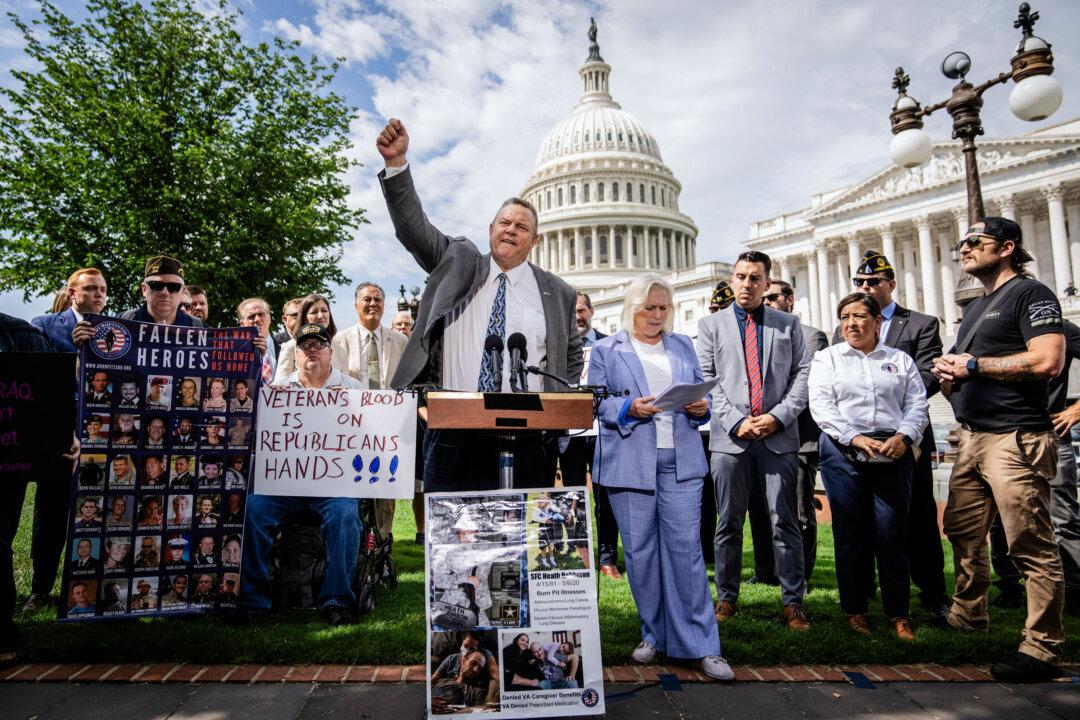Sen. Jon Tester (D-Mont.) said the Biden administration has “not done a good job” on the border, and Republican challenger Tim Sheehy declined to confirm or deny support for federal abortion restrictions, during a Sept. 30 debate, the first and last scheduled in their pivotal U.S. Senate race.
The hour-long exchange on the University of Montana campus in Missoula also featured discussions on federal public lands management, support for Ukraine, and affordable housing and health care programs, with Sheehy disputing claims he supports “pure privatization” of Medicare/Medicaid.





